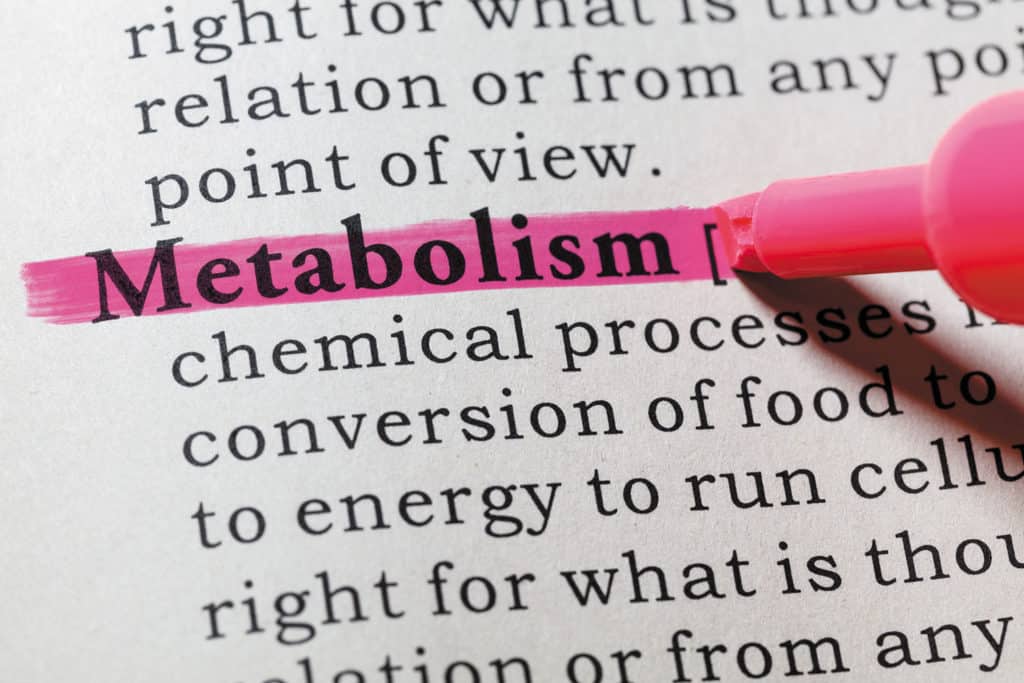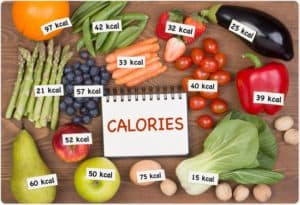You must have heard your friends or folks blaming their weight on Metabolism. But what does that mean? So, is metabolism really the one responsible for the weight gain? If that is the case then is it possible to ignite your metabolism so that it burns more calories?
What is Metabolism?
Metabolism refers to the chain of chemical reactions that occur in the cells of living organisms to sustain life. These metabolic processes lead to growth and reproduction and allow living organisms to maintain their structures and respond to the surrounding environment.
All chemical reactions that occur in living organisms, from digestion to the transport of substances from cell to cell, can be part of metabolism. Intermediary or intermediate metabolism is the term for the transport of substances into and between different cells.
It\’s true that metabolism is linked to weight. But actually, slow metabolism is rarely the cause of excess weight gain. Your metabolism is somewhere responsible for your body\’s basic energy needs.
But the things that ultimately determine your weight are how much you eat and drink along with how much physical activity you get.
How Metabolism Works
There are two categories of metabolism:
- Catabolism- The breakdown of organic matter.
- Anabolism- The one that constructs components of cells, such as proteins and nucleic acids.
The chemical reactions in the metabolic process are organized into metabolic pathways whereby one chemical is transformed through a series of steps into another chemical. Enzymes assist in this process by facilitating reactions and serving as catalysts for the reactions to occur.
The reactions would not occur without enzymes, which respond to signals between cells and regulate the metabolic pathways. The speed of metabolism is the metabolic rate. The metabolism of a person allows it to determine which substances are nutritious and useful, and which are not.
Some of the other chemicals and parts of an organism involved in the metabolic process are amino acids, proteins, lipids, carbohydrates, and minerals.
Nutrition And Metabolism
Nutrition is the ultimate key to metabolism. Metabolism relies upon nutrients that they breakdown in order to produce energy. Thus the body requires this energy to synthesize new proteins.
Nutrients with respect to metabolism involve around the bodily requirement for individual functions in the body, the amount needed and the level below which are poor health results. Essential nutrients supply energy and the necessary chemicals which the body itself cannot synthesize.
Why Is It Important?
The major elements are supplied in carbohydrates, lipids, and protein. In addition, vitamins, minerals, and water are necessary for it to work out smoothly in our body. Even when you\’re at rest, your body needs energy for all its \”hidden\” functions being:
- Breathing
- Circulating Blood
- Adjusting Hormone Levels
- Building and Repairing cells.
So, the number of calories or energy that your body uses to carry out these basic functions is known as your basal metabolic rate. You might call it metabolism.
This BMR differs from body to body on the basis of their Body Parameters and how consistent they are with their eating habits. Several factors determine your individual basal metabolism, including:
- Your body size and composition. People who are larger or have more muscle burn more calories, even at rest.
- Your sex. Men usually have less body fat and more muscle than do women of the same age and weight, which means men burn more calories.
- Your age. As you get older, the amount of muscle tends to decrease and fat accounts for more of your weight, slowing down calorie burning.
Metabolic Syndrome
It is a cluster of metabolic risk factors that come together in a single individual. The syndrome is not a specific condition, but it groups together a set of risk factors links to a higher chance of developing cardiovascular disease and type 2 diabetes.
Affected individuals are mostly either overweight or obese. Losing weight and especially in the upper body can be an effective treatment.
Suggested measures for preventing the aspects of metabolic syndrome can be:
- Getting on a “Heart-Healthy Diet” that is Low in Sugar.
- Taking a Little but Regular Exercise
- Avoiding Smoking
- Reducing Alcohol Intake
Symptoms Of Metabolic Syndrome
- Abdominal Obesity
- High Triglycerides
- Low HDL Cholesterol
- High Blood Pressure
- High Fasting Blood Glucose
Weight Gain and Metabolism
It can be convenient if you blame your metabolism for the excess weight gain. But because metabolism is a natural process, your body has many other mechanisms that are equally responsible to meet your individual needs.
Only in rare cases, you can get excessive weight gain from a medical problem that slows your metabolic rate, such as Hypothyroidism. Unfortunately, weight gain is a totally different and complicated process at the same time.
It\’s likely a combination of your genetics, hormonal controls, diet composition, and the impact of the environment on your lifestyle, including sleep, physical activity, and stress. All of these factors result in an imbalance in the energy equation.
You gain weight when you eat more calories than you burn or burn fewer calories than you eat. While it is true that some people seem to be able to lose weight more quickly and more easily than others, everyone loses weight when they burn up more calories than they eat.
To lose weight, you need to create an energy deficit by eating fewer calories, and by increasing the number of calories you burn through physical activity or both.
Outlook
Knowledge about all of the mechanisms that impact appetite, food selection, and how your body processes and burns food is increasing. An Expert Nutritionist can help you to explore ways that can help you to lose weight.
Get yourself started today and Stay tuned for more such keto weight loss journeys, health content, and recipes! Also, don\’t forget to follow us on Instagram for the daily dose of the Keto Lifestyle.









